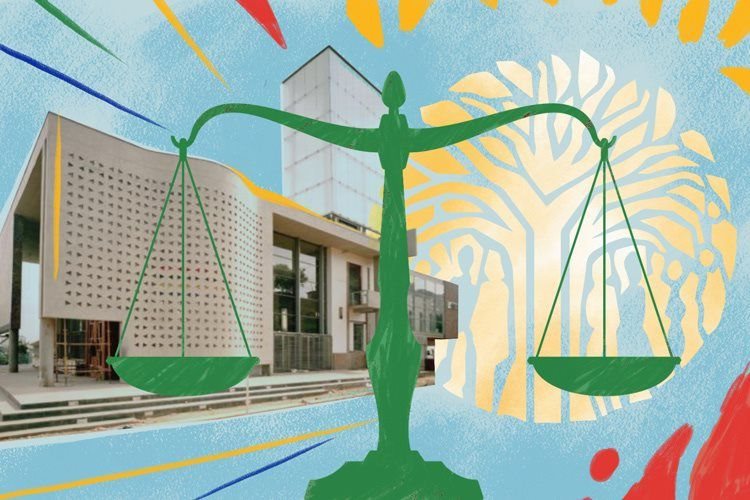
Top stories






More news


Marketing & Media
Ads are coming to AI. Does that really have to be such a bad thing?














Pretoria High Court Acting Judge Noluntu Bam has also nullified the approval by the KwaZulu-Natal regional manager of the Department of Mineral Resources of environmental plans which Tendele submitted to mine a further 222km2 in the north of the province.
The judge has ordered that the entire grant of the licence be reconsidered by the Minister of Mineral Resources and Energy. The Minister has been ordered to re-open an appeal lodged by various community organisations which had been dismissed.
This is the outcome of a court battle which has been going on since November 2018, launched by the Mfolozi Community Environmental Justice Organisation, the Global Environmental Trust, Mining Affected Communities In Action, the Southern Africa Human Rights Defenders Network and ActionAid South Africa following the failed appeal to the minister.
The Minister, and other state respondents, did not oppose the organisations’ application.
Judge Bam said it had been initially “fiercely opposed” by Tendele. The company was supported in its opposition by the local Mpukunyoni Traditional Council, a mining forum, and two unions representing the bulk of the workforce.
However, during the hearing, Tendele conceded that it could not defend its position on several issues, including that its public participation process was “imperfect”, there were deficiencies in its environmental reports, its specialist studies did not adequately cover the entire proposed mining area and certain environmental impacts had not been assessed at all.
The company said in light of this it intended to abandon most - about 92% - of the mining rights.
But the applicants persisted. They wanted orders reviewing and setting aside three decisions concerning the award of the mining rights and the dismissal of their appeal.
They argued that the right should never have been approved in the first place “evidenced by the very paperwork Tendele submitted to the department”.
They argued that their constitutional rights to an environment that is not harmful to their health or well-being, and their right not to be deprived of property, had been undermined.
Judge Bam, in her ruling handed down this week, said Tendele had been mining in the area since 2005. The licence under dispute had been awarded in May 2016.
She said Tendele had conceded that although the project had been described in public documents as a 32km2 extension of the mine, the mining right application actually covered 222km2.
There was also no dispute that its Environmental Management Programme report, while supported by seven expert studies, had not dealt with issues such as air quality, vibration and climate impact. Other reports were simply outdated.
Judge Bam said the “wheels came off” the process when Tendele submitted its scoping report to the regional manager who accepted it even though it had been compiled without consultation with interested and affected parties and without proof of consultation, in violation of the law.
This, the applicants had said, was shown by the fact that names of people to be consulted included Vorster, Baker, Fishers and Parsons, with only three African names.
The Judge said scoping reports were supposed to contain information in enough detail for that interested and affected parties to assess the impact on them.
“Tendele provided nothing of the sort. It was a fundamental breach of the law with regard to public participation. And it had already unduly limited the public participation through its defective notices (about the size of the mining area).”
“The attitude displayed by Tendele during the scoping phase is offensive.”
The judge also questioned the reported approval for the licence by the local traditional council.
A member of the council, in an affidavit, said the Inkosi, who has since died, had been “excited about the development”. But, Judge Bam said, there were no details about the circumstances under which consent had been granted and there was no paper trail about community consultation. Any consent could not have been “informed consent”.
While the applicants wanted the judge to send Tendele back to the starting blocks to apply for the licence afresh, Tendele argued that its legality, or otherwise, could be determined by the minister at appeal level.
The company said its mine had one of the largest resources of open-pit anthracite reserves in the country, and failure to meet its supply commitments could have devastating results not only to the company but to South Africa’s economy.
Also, the mine was also the only major employer in the area.
Judge Bam said: “This is a case that calls for pragmatism. It seems to me that an order referring the matter back to the minister will strike the correct balance of various competing interests.”
She directed that the minister reconsider the matter on appeal “in accordance with the findings of this judgment” and directed Tendele to notify interested and affected parties that they are entitled to participate in the appeal process by publishing the contents of this widely.
This article was originally published on GroundUp.

GroundUp is a community news organisation that focuses on social justice stories in vulnerable communities. We want our stories to make a difference.
Go to: http://www.groundup.org.za/